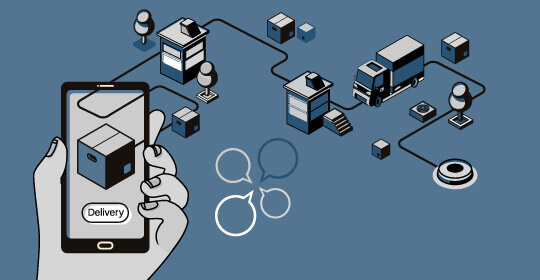“Don’t celebrate closing a sale, celebrate opening a relationship” – Patricia Fripp.
A few weeks ago, I came across this quote whilst reading an article on about how much customer relationship management (CRM)has changed over the last decade and to be completely honest, I had given it very little thought thereafter. That is, until now.

Last week, a report by Market Research Future predicted that the value of the CRM software market would reach $35 Billion Dollars by 2023.
For a concept that was created just over 2 decades ago, that is an incredible indication of the value that businesses are starting to place on CRM.
With such a massive emphasis on retaining customers and developing strong relationships, the question of how can I implement CRM in my business? is one that will undoubtedly be asked.
• Start with rapport
Unless your business has managed to carve out a monopoly in the market to provide a good or service that is in such high demand that you don’t need to sell yourself (in which case… well done!), developing a rapport with your customer is vital to completing a sale. A rapport is considered to be a state of emotional bonding between two people over shared values, or in this case, fulfilling a need. Creating a meaningful relationship with a customer requires a business to develop a rapport that engages with your buyer’s journey. Without it, the chances of making a sale and retaining that customer are slim-to-none.
• Customers don’t have needs… They have problems
Every sales book and strategist out there will tell you about the importance of selling to a customer’s needs. In theory, this is true, every customer has a need to be fulfilled.
But customers don’t sit down and say “I’ve got a need”. They say“I’ve got a problem”.
The key to making a sale is about finding this problem and exploiting it to provide a solution that your customer simply cannot ignore. Not only will you achieve a sale, but a customer is more likely to perceive your customer service as having provided value to them. Hence, they are more likely to remain loyal to your business when they find their next problem.
• Urgency is proportional to pain… And it’s got to hurt enough
For consumers, the more than a problem is hurting them, the more that urgent they will be to find a solution. Research suggests that three-quarters of people will seek a solution when they have 3 problems or more. As a result, your sales pitch needs to be about the benefits that your product or service provides and how that can solve your customer’s underlying problem.
• Be paranoid
In sales, the saying that you should “never count your chickens before they hatch” couldnot be more true. A saleis never in the bag until the payment has been made, and even then, customers may still return the product. You should always assume that a customer is willing to go to your competitor, no matter how keen they are to finalise the deal. In turn, you should always remember that a sale does not just finish after you hand a customer your product… It finishes when they return to purchase their second.
• Ask for honesty
It is hard to imagine selling a product or service to someone who is not being entirely straight with you about what they want, and given that an effective sale is driven by your ability to fix their problems, this can be a massive challenge to overcome. Yet as surprising as it may seem, many customers fail to tell the complete truth about what they require. As a result, you need to ask your customer questions about what they are looking for to determine if they themselves, even know what their problem is. If you fail to do so, you will struggle to make the sale and will lose the customer in the longrun because you have failed to meet their needs.
• Create Meaningful Relationships

How many times have you walked in and out of a store thinking “wow, that guy was pushy”?.For many customers, that interaction is one that they dread; the questions that arise the minute that they walk through the door and the feeling of being watched as they browse your store. Many customers will find this incredibly uncomfortable and in some instances, it may even deter them from buying your product. Hence, it is important to make sure that you respect your customer’s boundaries. Allow them to have a look at the products and services that you offer and when they are interested, make sure that you follow up by answering all the questions that they have.
• Know your ABC
“Always Be Closing” – a statement that is thrown around by so many sales representatives and strikes fear in every customer. If a customer is not ready to take the leap to finalise the sale, trying to pressure them into completing the deal will completely undo all the hard work you’ve already done. When customers feel pressured they will often find more objections and reasons as to why they cannot complete the sale.
Instead, you should “Always Be Testing”. Make sure to test any lingering objections or concerns that your customer may still hold before they leave your business and ensure that you effectively address these concerns. But most importantly, sales representatives need to recognise that not every customer is ready to buy. Respecting those boundaries will ensure that when the time to finalise the sale comes, they will return to your business.

Understanding your customer’s persona and their buyer’s journey is vital to delivering quality customer service. In today’s world, making a sale should not be the sole focus of a business. Rather you should focus on building meaningful and lasting relationships with your customers. After all, you’re not closing a sale, you’re starting a relationship.












More Stories
Genevo Marine to Lead Australia’s Electric Boat Revolution
Google Implements Restrictions on Election-Related Queries for Gemini Chatbot
3.6 Magnitude Earthquake Shakes Western Sydney and Blue Mountains: Residents Describe Intense Tremors and Swift Response